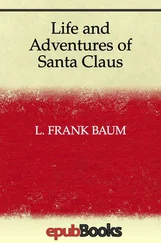Charles Dickens - Life And Adventures Of Martin Chuzzlewit
Здесь есть возможность читать онлайн «Charles Dickens - Life And Adventures Of Martin Chuzzlewit» весь текст электронной книги совершенно бесплатно (целиком полную версию без сокращений). В некоторых случаях можно слушать аудио, скачать через торрент в формате fb2 и присутствует краткое содержание. Жанр: Классическая проза, на английском языке. Описание произведения, (предисловие) а так же отзывы посетителей доступны на портале библиотеки ЛибКат.
- Название:Life And Adventures Of Martin Chuzzlewit
- Автор:
- Жанр:
- Год:неизвестен
- ISBN:нет данных
- Рейтинг книги:5 / 5. Голосов: 1
-
Избранное:Добавить в избранное
- Отзывы:
-
Ваша оценка:
- 100
- 1
- 2
- 3
- 4
- 5
Life And Adventures Of Martin Chuzzlewit: краткое содержание, описание и аннотация
Предлагаем к чтению аннотацию, описание, краткое содержание или предисловие (зависит от того, что написал сам автор книги «Life And Adventures Of Martin Chuzzlewit»). Если вы не нашли необходимую информацию о книге — напишите в комментариях, мы постараемся отыскать её.
Life And Adventures Of Martin Chuzzlewit — читать онлайн бесплатно полную книгу (весь текст) целиком
Ниже представлен текст книги, разбитый по страницам. Система сохранения места последней прочитанной страницы, позволяет с удобством читать онлайн бесплатно книгу «Life And Adventures Of Martin Chuzzlewit», без необходимости каждый раз заново искать на чём Вы остановились. Поставьте закладку, и сможете в любой момент перейти на страницу, на которой закончили чтение.
Интервал:
Закладка:
“My friends,” cried Mr Pecksniff, looking over the banisters, “let us improve our minds by mutual inquiry and discussion. Let us be moral. Let us contemplate existence. Where is Jinkins?”
“Here,” cried that gentleman. “Go to bed again”
“To bed!” said Mr Pecksniff. “Bed! “Tis the voice of the sluggard, I hear him complain, you have woke me too soon, I must slumber again. If any young orphan will repeat the remainder of that simple piece from Doctor Watts's collection, an eligible opportunity now offers.”
Nobody volunteered.
“This is very soothing,” said Mr Pecksniff, after a pause. “Extremely so. Cool and refreshing; particularly to the legs! The legs of the human subject, my friends, are a beautiful production. Compare them with wooden legs, and observe the difference between the anatomy of nature and the anatomy of art. Do you know,” said Mr Pecksniff, leaning over the banisters, with an odd recollection of his familiar manner among new pupils at home, “that I should very much like to see Mrs Todgers's notion of a wooden leg, if perfectly agreeable to herself!”
As it appeared impossible to entertain any reasonable hopes of him after this speech, Mr Jinkins and Mr Gander went upstairs again, and once more got him into bed. But they had not descended to the second floor before he was out again; nor, when they had repeated the process, had they descended the first flight, before he was out again. In a word, as often as he was shut up in his own room, he darted out afresh, charged with some new moral sentiment, which he continually repeated over the banisters, with extraordinary relish, and an irrepressible desire for the improvement of his fellow creatures that nothing could subdue.
Under these circumstances, when they had got him into bed for the thirtieth time or so, Mr Jinkins held him, while his companion went downstairs in search of Bailey junior, with whom he presently returned. That youth having been apprised of the service required of him, was in great spirits, and brought up a stool, a candle, and his supper; to the end that he might keep watch outside the bedroom door with tolerable comfort.
When he had completed his arrangements, they locked Mr Pecksniff in, and left the key on the outside; charging the young page to listen attentively for symptoms of an apoplectic nature, with which the patient might be troubled, and, in case of any such presenting themselves, to summon them without delay. To which Mr Bailey modestly replied that “he hoped he knowed wot o'clock it wos in gineral, and didn't date his letters to his friends from Todgers's for nothing.”
CHAPTER TEN
CONTAINING STRANGE MATTER, ON WHICH MANY EVENTS IN THIS HISTORY MAY, FOR THEIR GOOD OR EVIL INFLUENCE, CHIEFLY DEPEND
But Mr Pecksniff came to town on business. Had he forgotten that? Was he always taking his pleasure with Todgers's jovial brood, unmindful of the serious demands, whatever they might be, upon his calm consideration? No.
Time and tide will wait for no man, saith the adage. But all men have to wait for time and tide. That tide which, taken at the flood, would lead Seth Pecksniff on to fortune, was marked down in the table, and about to flow. No idle Pecksniff lingered far inland, unmindful of the changes of the stream; but there, upon the water's edge, over his shoes already, stood the worthy creature, prepared to wallow in the very mud, so that it slid towards the quarter of his hope.
The trustfulness of his two fair daughters was beautiful indeed. They had that firm reliance on their parent's nature, which taught them to feel certain that in all he did he had his purpose straight and full before him. And that its noble end and object was himself, which almost of necessity included them, they knew. The devotion of these maids was perfect.
Their filial confidence was rendered the more touching, by their having no knowledge of their parent's real designs, in the present instance. All that they knew of his proceedings was, that every morning, after the early breakfast, he repaired to the post office and inquired for letters. That task performed, his business for the day was over; and he again relaxed, until the rising of another sun proclaimed the advent of another post.
This went on for four or five days. At length, one morning, Mr Pecksniff returned with a breathless rapidity, strange to observe in him, at other times so calm; and, seeking immediate speech with his daughters, shut himself up with them in private conference for two whole hours. Of all that passed in this period, only the following words of Mr Pecksniff's utterance are known:
“How he has come to change so very much (if it should turn out as I expect, that he has), we needn't stop to inquire. My dears, I have my thoughts upon the subject, but I will not impart them. It is enough that we will not be proud, resentful, or unforgiving. If he wants our friendship he shall have it. We know our duty, I hope!”
That same day at noon, an old gentleman alighted from a hackney-coach at the post-office, and, giving his name, inquired for a letter addressed to himself, and directed to be left till called for. It had been lying there some days. The superscription was in Mr Pecksniff's hand, and it was sealed with Mr Pecksniff's seal.
It was very short, containing indeed nothing more than an address “with Mr Pecksniff's respectful, and (not withstanding what has passed) sincerely affectionate regards.”The old gentleman tore off the direction—scattering the rest in fragments to the winds—and giving it to the coachman, bade him drive as near that place as he could. In pursuance of these instructions he was driven to the Monument; where he again alighted, and dismissed the vehicle, and walked towards Todgers's.
Though the face, and form, and gait of this old man, and even his grip of the stout stick on which he leaned, were all expressive of a resolution not easily shaken, and a purpose (it matters little whether right or wrong, just now) such as in other days might have survived the rack, and had its strongest life in weakest death; still there were grains of hesitation in his mind, which made him now avoid the house he sought, and loiter to and fro in a gleam of sunlight, that brightened the little churchyard hard by. There may have been, in the presence of those idle heaps of dust among the busiest stir of life, something to increase his wavering; but there he walked, awakening the echoes as he paced up and down, until the church clock, striking the quarters for the second time since he had been there, roused him from his meditation. Shaking off his incertitude as the air parted with the sound of the bells, he walked rapidly to the house, and knocked at the door.
Mr Pecksniff was seated in the landlady's little room, and his visitor found him reading—by an accident; he apologised for it—an excellent theological work. There were cake and wine upon a little table—by another accident, for which he also apologised. Indeed he said, he had given his visitor up, and was about to partake of that simple refreshment with his children, when he knocked at the door.
“Your daughters are well?” said old Martin, laying down his hat and stick.
Mr Pecksniff endeavoured to conceal his agitation as a father when he answered Yes, they were. They were good girls, he said, very good. He would not venture to recommend Mr Chuzzlewit to take the easy-chair, or to keep out of the draught from the door. If he made any such suggestion, he would expose himself, he feared, to most unjust suspicion. He would, therefore, content himself with remarking that there was an easy-chair in the room, and that the door was far from being air-tight. This latter imperfection, he might perhaps venture to add, was not uncommonly to be met with in old houses.
Читать дальшеИнтервал:
Закладка:
Похожие книги на «Life And Adventures Of Martin Chuzzlewit»
Представляем Вашему вниманию похожие книги на «Life And Adventures Of Martin Chuzzlewit» списком для выбора. Мы отобрали схожую по названию и смыслу литературу в надежде предоставить читателям больше вариантов отыскать новые, интересные, ещё непрочитанные произведения.
Обсуждение, отзывы о книге «Life And Adventures Of Martin Chuzzlewit» и просто собственные мнения читателей. Оставьте ваши комментарии, напишите, что Вы думаете о произведении, его смысле или главных героях. Укажите что конкретно понравилось, а что нет, и почему Вы так считаете.









